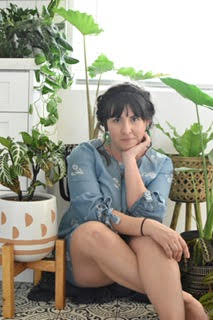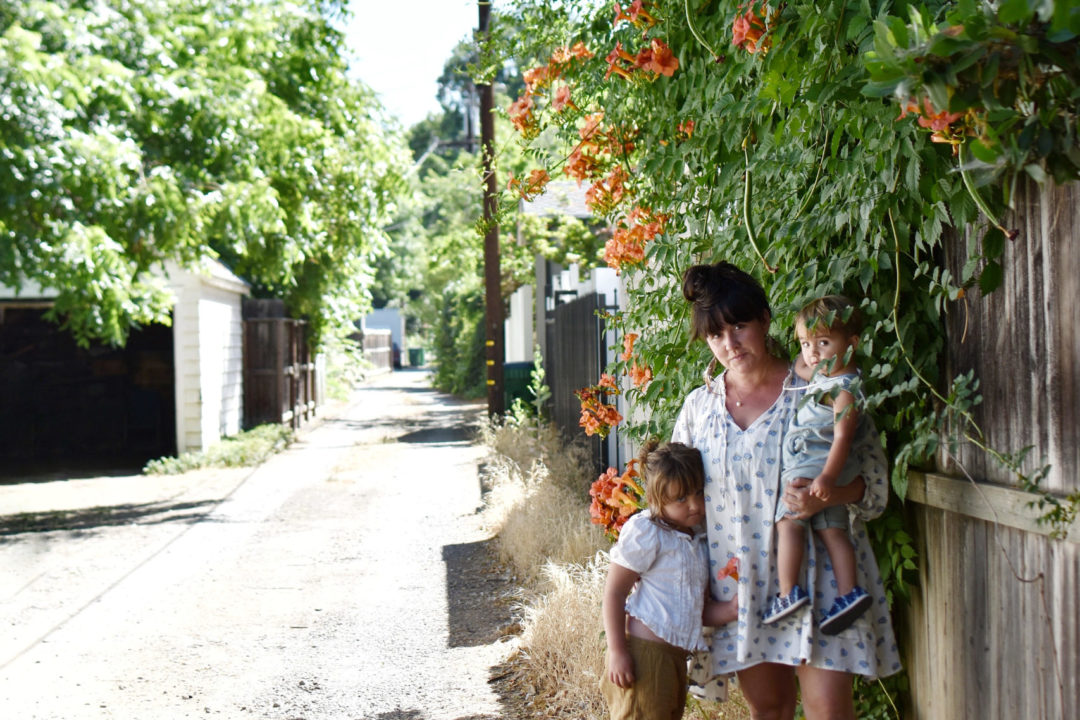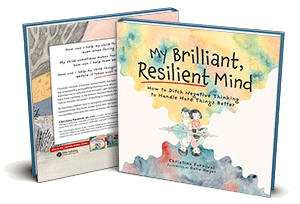Hi there! I’m Christina, a mom of two littles, a licensed mental health therapist, and a soon-to-be children’s book author! Thanks for checking out my site. Look around! I’m sure there’s something here for you! This guest article by Kayla Donato is about her experience entering motherhood already having mental health challenges. Kayla is a mother with a panic disorder.
I am a Mother with a Panic Disorder
I’ve gone into detail about how anxiety and panic disorder have affected my life in a couple of my own personal blog posts so far (here and here), and if you follow me on Instagram you can see more about how they regularly pop up to say (a rather unwanted) “hi” now and then. What I’ve been thinking about lately is what it meant to become a mother with a panic disorder.
More and more, the dialogue surrounding postpartum mental health broadens.
I see brave women continue to step up to share their postpartum mood disorder experiences all the time. And I see more healthcare institutions being held accountable for better postpartum mental healthcare.
But, what if you are a woman who already has mental health challenges before having your kids? What if it’s not just a possibility that you’ll struggle postpartum, but you know you will because you already do?
I am lucky, really. Though I went through a time where panic disorder affected my everyday life, I’ve largely been able to manage it. My tools are therapy, self-care, and learning to listen to my body about it’s mental health needs.
However, while anticipating motherhood, I worried about how I would function as a mother with anxiety and panic.
When you are kid-less and having a bad mental health day, you can climb into bed or sit on your couch alone, coping with whatever symptoms flare up at any given time. You can worry about yourself alone and not have to worry about keeping another human alive while your heart races and it feels like the world slips out from under you.
How can someone keep it together enough to care for another tiny human if she can barely care for herself at times?
My pre-Mom worries about mental health and motherhood:
- What if I experience brain fog or depersonalization more times than not when I am with my children? These two scary symptoms can make me spend too much time feeling like I’m not living my own life, like I’m in a dreamworld. It is similar to the feeling you have when extremely tired…but often I have had it for days and weeks at a time. What if I am not present with my children and miss our whole lives flying by?
- What if I experience panic when I’m alone with them? Panic attacks are a very real, physiological thing, and leave a person exhausted in body and mind. What if I’m alone and I pass out and they get hurt? I worried about passing out while wearing my daughter. (Note: I have NEVER passed out due to anxiety or any other cause, this is one of my personal irrational fears).
- What if I experience panic while I’m driving them? What if I pass out in the car and we crash? Again, cue the irrational thinking.
- What if I go through an extended period of anxiety, like I have before, that leads to depression, like it did before? What will my children remember of me? Will they resent if I’m not strong enough to be a “normal” mom? Will I miss out on some of the best times of our lives?
- How can I care for myself so these things don’t happen when I am a mom and will have less time to myself? How can I make time to see my therapist or exercise to ward off the nasties?
Please consider these fears with kindness in your heart. Like I said, anxiety isn’t always rational. Because of the stigmatization of mental illness, I already often felt like the crazy lady before becoming a mom. I feared being the crazy mother.
But the reality is, I’m a normal woman with over or under active brain hormones that cause frightening thoughts and physiological symptoms.
And this is why I speak up.
Because you or your friend or your sister might be in my boat and afraid of being that crazy lady, too. But we aren’t. And our voices are louder together.
Ok, back to my topic here.
So what did I find when I became a mother with a panic disorder and anxiety? Well, it’s been a lot less scary that I thought. I can’t speak for every woman, but for me motherhood has unveiled a strength in me I never knew I had. I didn’t have it for myself, actually. This strength exists for that little girl and boy that beam up at me, even when I’m at my worst. From the get-go, I’ve wanted to be better for them in most areas of my life, especially the area of mental health.
In seeing my children’s value and wanting her to value themselves as I do, I’ve realized how important it is to value myself just as much, and prioritize my own wellness.
My post-Mom reflections and learnings about mental illness, panic disorder, and motherhood:
- It’s not gone. Despite finding new strength to conquer my demons with, motherhood is not a magic wand that waves all my anxiety and panic disorder symptoms away. In fact, I had to go to a pretty deep and dark place right after birth to find that will to pick myself back up again.
- It might change. After birth, I experienced a new and different wave of disordered anxiety. I had new symptoms: scary dreams, intrusive thoughts, rage, and insomnia. While I still experience some of this from time to time, I believe this was mostly due to postpartum hormone shifts and the demands on a brand new mother. It was surprising how different anxiety can look for the same person at different life stages.
- I still need help, sometimes even more, though it is harder to make time for it. I still see a therapist every three weeks. It is something I have to carve out time for, but it is necessary for my mental health. I tell my husband I need an hour or take an hour leave from work for these appointments instead of being able to stop by after work like I used to. Think of it this way: if you had a chronic illness, you would HAVE to make time for a doctor, possibly even to keep yourself alive. This is true for your mental health as well. It’s worth it. You’re worth it. Many therapists offer video visits now, and are accommodating if a baby needs to come to visits. I would recommend seeking out a therapist who is also a mother and can relate to the need for flexibility.
- It takes work. Still. This is something I knew before having a child, but I’ve really seen the fruits of my labor since giving birth. I’m managing my anxiety much better these days, but I’m not “cured”. I’m no miracle, there was no single amazing thing that whisked my symptoms away for good. I’ve done the hard work of therapy, self-therapy, meditation, exercise, and self-advocacy that has gotten me this far. It will take maintenance, likely forever, and symptoms may show up time and again. But again, the relief I’ve found from maintaining wellness routines and rituals is so worth it!
- The kids will be okay. Kids are compassionate, understanding beings. If I have a bad day and need to spend some time on the couch resting, or we take the back roads on an outing because I am having panic symptoms on the freeway, they really don’t mind. It helps to explain what’s happening a bit: “Mama is having some anxiety, my head feels a little dizzy and I need a break.” But I have found, for the most part, my kids want mama to feel better as much as mama does. I also feel good modeling taking care of one’s needs when you need to.
- The act of simply being a mother can help alleviate my anxiety. This one was most surprising. Caring for my children, being present with them in play or diaper changes or reading books or meals, helps me to stay out of my brain and not worry about the past or future. It’s mindfulness in the making! I’m sure, scientifically speaking, the endorphins and dopamine that are released when we’re enjoying time together help, too. Caring for someone who has no other reality except the here and now forces me to be here and now. It’s the way we were all really meant to live before these crazy modern lives took over. What an unexpected blessing!
It’s hard to predict how parenthood will change you, good or bad, temporarily or forever, until you are in it.
For me, my fears about how I could parent as a mother with a panic disorder and significant anxiety were greater than my reality, much like many of the other experiences anxiety has high-jacked.
I’ve found strength in my role as a primary caregiver. I’ve learned to talk about my needs in any given moment and celebrate my triumphs, small and large.
I hope for similar experiences for all of my friends with mental health struggles who are anticipating parenthood, but I recognize that might not be the reality.
My greatest advice is to seek help when you need it, fill your own cup when it’s empty, and listen to the physical cues your body is sending you to slow down or rest. Someone great somewhere once said, “You can’t pour from an empty vessel.”
Also, friends, there is hope. This, too, shall pass. And, most of all, you are not alone.
Thank you, Kayla for writing this post on being a mother with a panic disorder!

Kayla Donato is a mom to two young children, a teacher, and an inspirational human. She and I were virtual mom friends before finally meeting up for playdates with our kiddos in person, and becoming real friends. Check her out on Instagram and her blog!


